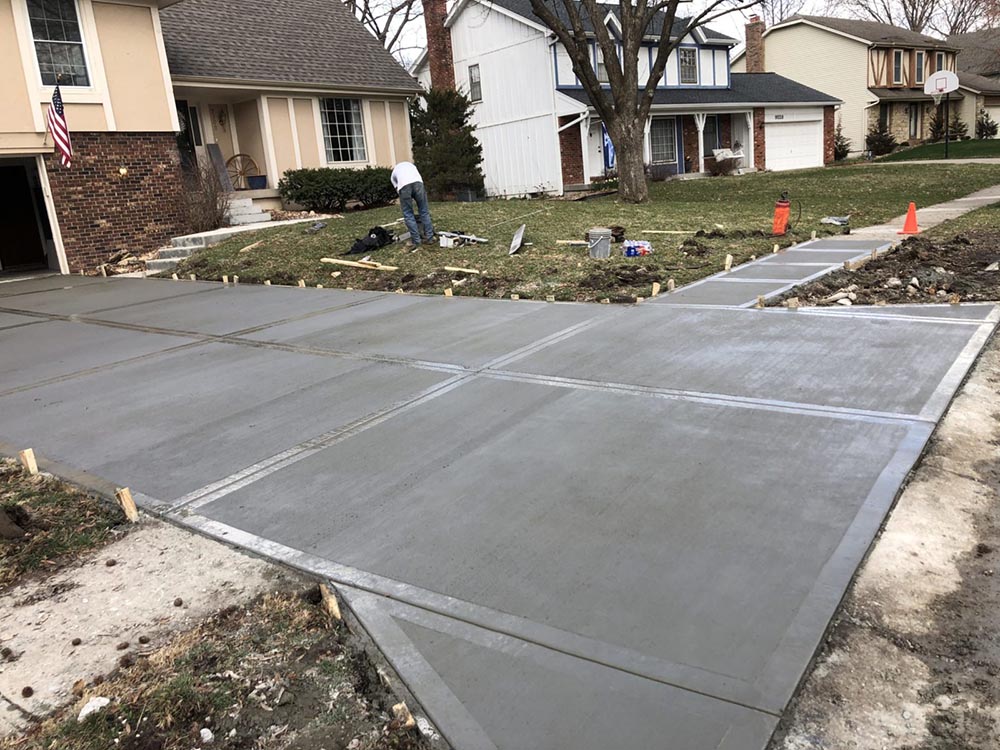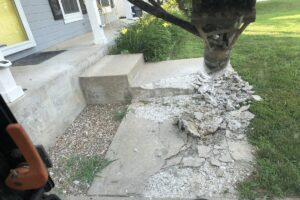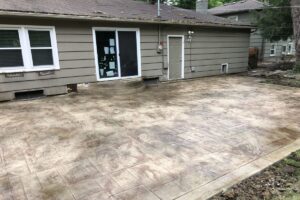If it’s time to replace your current driveway, you are probably considering the two most common materials used today – asphalt and concrete. While both go over a substrate of gravel and both include a mix of stone and sand, different adhesives are used to keep the components together. For asphalt, the adhesive is tar, and for concrete, it is cement.
The characteristics of the adhesives are what set asphalt and concrete apart.
It is important to note that both are durable and attractive materials for driveways. However, there is more to choosing between these than just going with the more affordable option. Keep reading to learn more about each of the materials to help you make the right decision about which one to use.
Concrete Provides More Visual Options
In its basic form, asphalt is black or extremely dark gray. That’s why it is often referred to as “blacktop.”
Concrete, on the other hand, is light gray in its natural form, but can be tinted using any color you desire. It is also possible to stamp different patterns on the concrete or brush it to create a textured finish. Choose concrete if you want something that matches the color scheme of the home, to recreate the look of brick or other patterns, or something else. You can also use concrete to create more interest in front of your home. Asphalt is a smart option if you want to create a streamlined appearance that blends in with the street.
Asphalt Performs Well in Extreme Cold and Concrete Performs Well in High Heat
Climate is a serious consideration when deciding between concrete or asphalt. If you live somewhere with hotter summers, you may find asphalt to be too sticky or gooey when the temperature goes up. The cycle of softening during high-heat times and then re-hardening when things cool down can cause it to begin cracking and sagging.
However, concrete may crack, heave, or buckle during the cold months. The salt used for melting ice can also smudge, stain, or pit concrete, causing ugly marks. It also takes ice and snow longer to melt when it falls on concrete compared to asphalt.
Asphalt Must Be Resealed and Concrete Stains Easily
A few months after the asphalt has been installed and it is fully cured, it must be sealed to protect the surface and increase its lifespan. After that point, you must invest in resealing every three to five years.
While sealing is not necessary for concrete driveways, sealing this material can reduce fading. This is an important step to take if you have chosen to install tinted concrete.
Another important consideration is that concrete surfaces stain more than asphalt ones do. The darker color of asphalt hides most stains.
Deciding Between the Two
Both concrete and asphalt have pros and cons to consider. Be sure to review the information here to find out what material is best suited for your property.
For concrete replacement in Kansas City, contact Johnson Concrete today!




